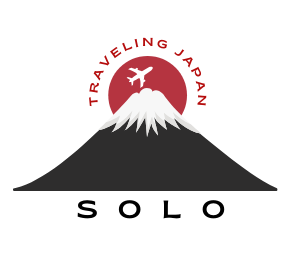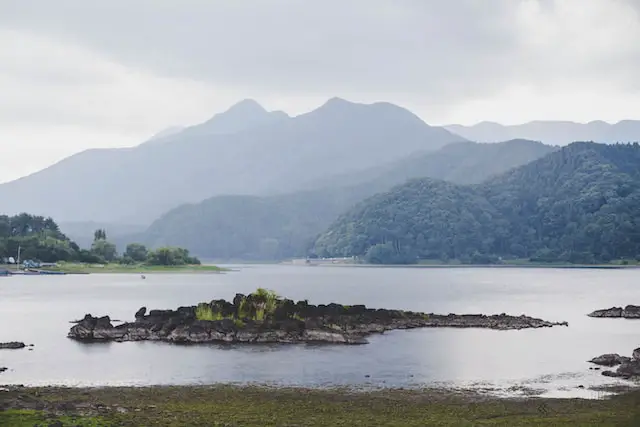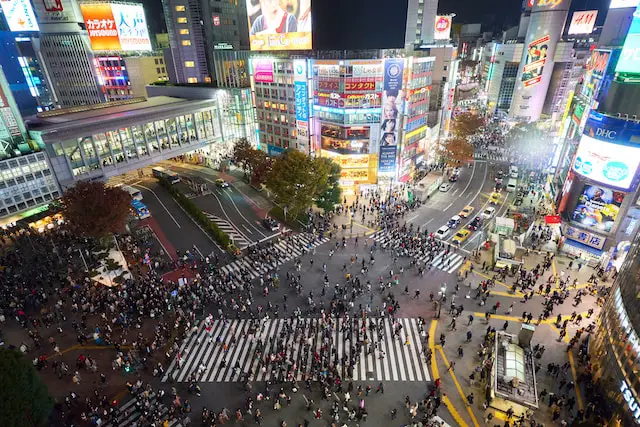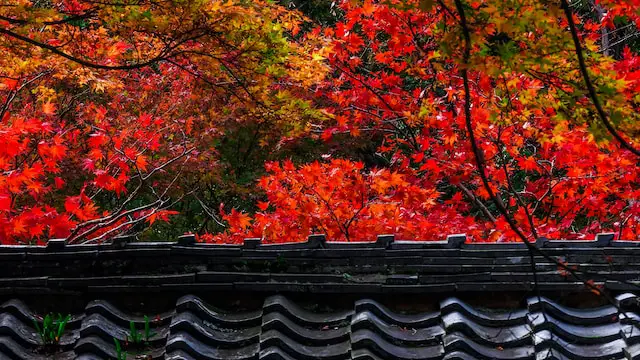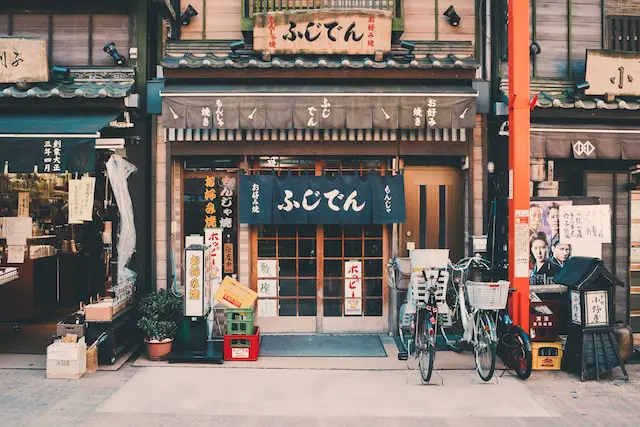Welcome to the mystical world of Mount Koya, a pinnacle of spiritual travel and a true gem of Japan travel. Nestled amidst the lush mountain ranges of the Kii Peninsula, this sacred destination plays a significant role in the cultural heritage of Japan.
Known as one of Japan’s sacred mountains, Mount Koya, or Koyasan, offers travelers an extraordinary blend of historical insight, natural beauty, and profound spirituality. For yearning seekers or curious travelers, a spiritual retreat to Japan remains incomplete without plunging into the serene transcendence offered by this ancient mountain enclave.
Ascend to enlightenment and discover unexplored facets of yourself as you navigate the marvels of Mount Koya. Ready to start this unique journey?
For those seeking a immersive journey into Japan’s cultural heritage, the sacred Mount Koya, a UNESCO World Heritage Site, is an unparalleled destination. Its rich and enduring history makes it stand proud among Japan UNESCO World Heritage sites, echoing the ancient spiritual traditions of the nation.
The grounding of Mount Koya’s historical significance lies in its founder, the revered Buddhist monk, Kobo Daishi, also known as Kukai. Kobo Daishi is one of the most influential figures in Japanese religious history, having introduced Shingon Buddhism to Japan in the 9th century. His teachings have nourished the Japanese culture and are still practiced widely today.
Founded in 816, the vast monastic complex that Kobo Daishi first envisaged, currently houses over a hundred temples. This revered site, nestled within the tranquil forest terrain, forms the nucleus of Shingon Buddhism, attracting adherents of faith and curious explorers alike.
The importance of Mount Koya’s role in the spiritual welfare of the Japanese, and indeed, of the global Buddhist community, cannot be understated. Consequently, it has received its rightful position as a Japan UNESCO World Heritage site. This recognition underscores not only its historic and spiritual weight but also its standout natural beauty, which contribute notably to the country’s diverse cultural patrimony.
So, whether you’re a spiritual seeker, a history buff, or a connoisseur of natural beauty, Mount Koya offers a captivating journey into the heart of Japan’s cultural heritage. This is the epitome of a pilgrimage site, imbued with the wisdom and teachings of Kobo Daishi, ringing across the centuries.
If you’re looking to embark on a journey to the sacred Mount Koya, also known as Koyasan, there are a few varied and intriguing options available. Despite being nestled deep within the forest-clad mountains of the Wakayama prefecture, getting there is part of the experience.
If your travel begins from the bustling city of Osaka, the most convenient way is to take the Nankai Koya Line from Namba Station directly to Gokurakubashi Station. This roughly 90-minute train ride whisks you from urban landscapes to serene mountains, setting the tone for your spiritual retreat. To reach the mountaintop, take a quick 5-minute cable car ride from Gokurakubashi Station.
Travelling from Kyoto requires a bit more planning, as there isn’t a direct train to Mount Koya. Your journey ideally involves travelling from Kyoto to Osaka, following the same route as described above. Direct limited express trains run between Kyoto and Osaka frequently, simplifying your commute.
For the more adventurous souls who seek a deeper connection, consider hiking. The historic Koyasan Choishi Michi trail, originally used by Kobo Daishi, leads you to Koyasan through ancient forests and past numerous stone markers. The trail begins from Kudoyama Station on the Nankai Koya Line, and takes about 7 to 9 hours. A truly immersive experience for those ready to embrace the spirit of pilgrimage.
Your journey to Mount Koya, whether it be a straightforward train ride or a more arduous hike, serves as an unforgettable start to your spiritual retreat in this revered destination of Japan.
Unique Spiritual Experiences in Mount Koya
As you ascend the misty path towards Mount Koya, the spiritual heart of Japan, you enter a sacred realm where deep spiritual practices have thrived for over a thousand years. This spiritual retreat in Japan is a haven of tranquility, offering unique opportunities for profound spiritual experiences that are deeply entrenched in centuries-old traditions.
Mount Koya, known as Koyasan, stands out not only for its beautiful mountainous setting but for the calm and serene aura that pervades its temples, fostering spiritual moments of meditation. Practicing meditation in Japan doesn’t get more authentic than here. The specific meditation style called ‘Ajikan,’ practiced by Shingon Buddhism monks since the 9th century, gives you an avenue to disconnect from the world’s noise and connect deeply with your inner self.
Alongside mediation, Mount Koya offers the rare chance to experience the spiritual practice of sutra copying, known as ‘Shakyo.’ Considered a form of meditation, Shakyo involves carefully copying Buddhist scriptures, character by character, imbuing each stroke with focused intention. This calming practice is reputed for its healing properties, providing a sense of peace and fulfillment.
Whether you’re on a personal spiritual journey or simply looking to experience the rich cultural heritage of spiritual practices in Japan, Mount Koya provides a tranquil setting for connecting with deeper truths and finding inner peace.
Explore the Okunoin Cemetery
One of the most iconic and deeply fascinating stops on your spiritual journey to Mount Koya is the empyreal visit to the Okunoin Cemetery. Steeped in mystique and ensconced in abundant greenery, it carries an ethereal beauty that makes it one of the must-visit cultural sites in Japan.
As the largest cemetery in Japan, Okunoin is a destination rich in history and culture. It provides an emotional journey through Japan’s past, housing more than 200,000 tombstones lining the almost two-kilometre path to Kobo Daishi’s mausoleum.
The graves belong to people from all walks of life, from legendary samurais and prominent monks to modern-day company CEOs. They have chosen their final resting place here to be close to Kobo Daishi, the founder of Shingon Buddhism, who is believed to be in eternal meditation. The cemetery is the heart and soul of Mount Koya and provides a serene spiritual experience to its visitors.
During daytime, the towering cedar trees offer a captivating scenery draped in tranquillity. But it’s the night tour of the cemetery that offers a unique and somewhat surreal encounter. Guided tours provide lantern-lit walks tracing the paths of pilgrims, narrating intriguing stories and legends that surround Okunoin.
Your visit to Okunoin concludes at the Torodo Hall, where thousands of lamps, kept eternally lit, reflect in a mirror to create a magical sight that is a symbol of enlightenment. This spiritual journey to one of Japan’s most sacred destinations will indubitably leave you with a profound sense of peace and appreciation for Japan’s cultural heritage.
Experiencing Shukubo (Temple Lodging)
A journey to Mount Koya would remain incomplete without immersing yourself in the traditional lifestyle by staying at a Shukubo or temple lodging. Shukubos are temples that offer accommodation to pilgrims and tourists, giving a unique glimpse into the daily life of monks. It’s a key part of your Japanese temple lodging experience.
Meditative chanting resonating through the corridors at dawn, the rustic charm of Tatami matted rooms, and an opportunity to participate in the monastic practices of these temples, offer an experience like none other. More than just a place to sleep, Shukubo on Mount Koya is a window into Japan’s deep spiritual history and traditions.
There are over 50 Shukubos in Mount Koya, each offering their unique experience. Some exist in centuries-old wooden buildings, brimming with a sense of history, while others may resemble a Ryokan, a type of traditional Japanese inn. Regardless, you’ll typically have a serene view of nature, showcasing the tranquil beauty of Mount Koya.
Almost all Shukubos in Mount Koya serve Shojin Ryori, a vegetarian cuisine prepared in a way that respects Buddhist principles. It’s a nourishing, spiritual addition to your stay.
Book well in advance for your Shukubo stay, especially during peak seasons. It is a popular experience that attracts both local and international travellers, eagerly seeking a unique spiritual retreat in Japan.
Experiencing Shukubo is not just about a stay, it’s a journey towards understanding the spiritual heart of Japan’s cultural heritage. It’s an indispensable part of your Mount Koya visit to truly connect with the soul of Japanese spirituality.
Savouring Shojin Ryori (Buddhist Vegetarian Cuisine)
One important and unique part of the spiritual retreat experience on Mount Koya is the opportunity to partake in traditional Buddhist meals, known as Shojin Ryori. Rooted deeply in Japan’s cultural and spiritual paradigms, Shojin Ryori is more than just a treat for your taste buds. It’s a journey in spiritual connection, discipline, and appreciation for nature’s bounty.
“Shojin”, meaning “devotion”, and “Ryori”, meaning cooking, is a type of vegetarian cuisine historically prepared in Buddhist temples and for spiritual retreats. Serenely prepared by temple monks, Shojin Ryori is centered around simplicity, eschewing luxury ingredients for humble, seasonal vegetables and soy products. Its entirely plant-based dishes are a delight for those who follow a vegetarian or vegan diet, making Mount Koya an excellent stop for vegetarian travel in Japan.
The meals consist of various dishes celebrating Japan’s seasonal produce, such as tempura vegetables, tofu, miso soup, vegetable stews, and rice. Every bite is a testament to the region’s rich, fertile landscape and emphasizes the Buddhist belief in respect for all living creatures.
It’s not just about the food, but also the dining experience. The meal is usually served in lacquerware bowls and plates, presented beautifully with a touch of Zen aesthetics. Sitting down to a Shojin Ryori meal is, in itself, a practice in mindfulness, urging one to eat slowly and appreciate each bite.
With its deep roots in spirituality and its status as a form of artistic expression, Shojin Ryori on Mount Koya is the perfect display of how cuisine can play a significant role in understanding and participating in Japan’s cultural heritage.
Visit Kongobu-ji Temple
Prepare for a mesmerizing part of your Mount Koya pilgrimage; unravelling the layers of history nestled within the Kongobu-ji Temple, one of the most unique temples in Japan.
This renowned temple bears great importance in Japanese cultural heritage. It captivates with its peaceful aura and carries within its walls, centuries of spirituality and stoic devotion. As you enter, you’ll be greeted by a soothing presence that stems from its sacred history.
A unique feature of the Kongobu-ji Temple, and indeed a highlight, is the Karesansui rock garden. Visually stunning with its intricately placed rocks symbolizing a two dragons emerging from a sea of clouds, this garden serves as a focal point for meditation and has a special spiritual significance. It’s an epitome of zen that urges visitors to contemplate and reflect.
Apart from the substantial external beauty, the temple houses valuable historic frescoes within. The artistic wall paintings depict an array of stories and teach lessons from age-old Buddhist philosophy. Painted with vibrant colors and a touch of gold leaf, these murals add an immense aesthetic value to the temple.
Embark on this journey to the Kongobu-ji Temple to unravel a lesser-known facet of Japan’s cultural heritage. You’ll uncover tranquility, spirituality, and majestic artistry that will surely make the visit a truly unforgettable part of your Japan travel adventure.
The spiritual journey offered by Mount Koya continues to mesmerize with an exhilarating hike on one of Japan’s oldest pilgrimage routes: the Koyasan Choishi Michi. In the impeccable meld of nature and spirituality, this route best exemplifies Japan hiking routes that teem with an otherworldly charm.
Imagine greeting the day in the serene environs of a dawn-draped forest, and set foot on the gravelly path flanked with millions of years old trees. Envision a series of stone markers, aptly termed as ‘choishi’, guiding you along the 23.5km trail. Each pillar, dating back to 1200 years ago, underlines the importance of modesty and nurturing a reflective mind, escalating this hike from a mere physical exercise to a spiritual learning experience.
Worried about getting lost in the ancient landscapes? Fear not! For the considerate site management also offers guided tours for peace of mind. It is a remarkable way to delve into the historical and cultural essence of the path, making your hike far more informative and enriching. Do mind that these hikes can sometimes elevate to moderately difficult given the terrain, but the mesmerising sights make it all worth the while.
Conclusion
In conclusion, the Koyasan Choishi Michi presents itself as a hiker’s paradise that is inseparable from its spiritual roots. As you walk the same ancient routes that generations of pilgrims have traversed, you’ll find yourself welcomed into a world of introspection and tranquillity, an experience that we fondly term as the ‘Mount Koya experience’.
Whether you are spiritual or enjoy exploring offbeat paths, this sacred mountain trail promises a unique experience, whispering tales of Japan’s cultural heritage with every step you take. We encourage you all to journey through these spiritual trails and immerse yourself in the profound beauty that is Mount Koya.
In concluding, the sacred Mount Koya offers far more than a typical visit to a beautiful mountain; it provides an immersive spiritual retreat unlike any other. Indeed, this UNESCO World Heritage site invites you to deeply delve into Japan’s rich cultural and spiritual heritage amid its pristine natural beauty.
Alongside its rich history and captivating beauty, the experiences Mount Koya offers have the remarkable strength to spiritually transform you. From the serenity of Shukubo temple lodging to the array of spiritual practices, and from tasting the divine vegetarian cuisine Shojin Ryori to tracing the ancient routes of pilgrims, each provides transformative experience.
We encourage you to embark on this unique exploration of Mount Koya, one of Japan’s sacred mountains. Whether you are a seasoned spiritual adventurer or just beginning your journey, an unforgettable spiritual retreat waits for you in Japan.
